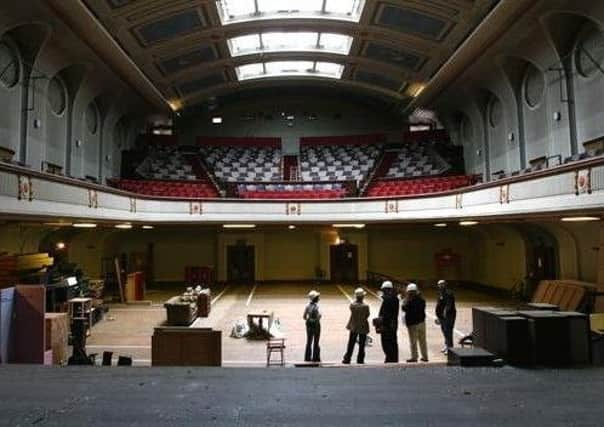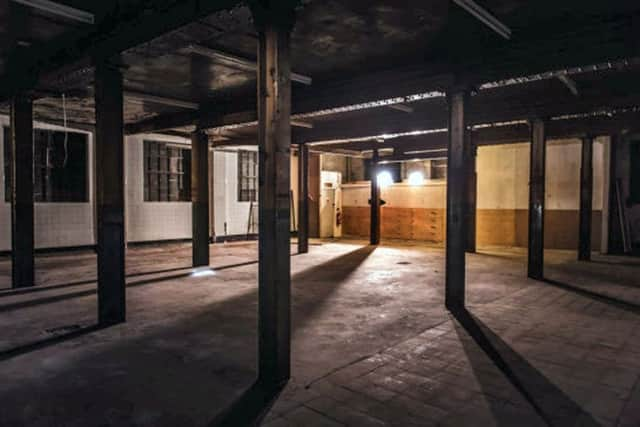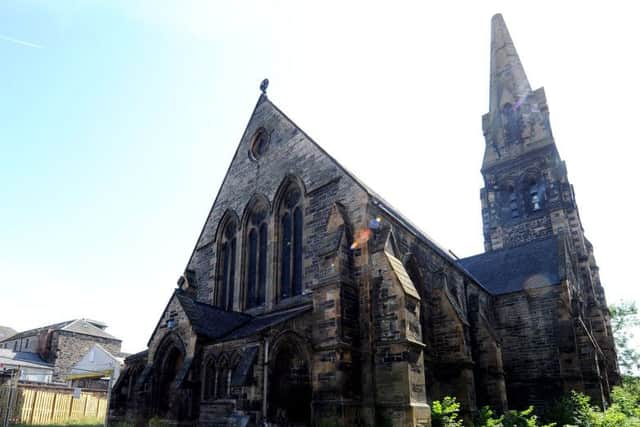Empty buildings to serve as venues under key festival deal


Cultural elements will be built into new developments, empty buildings across the city would be made available to festivals and more events would be held in public areas in future years following the signing of the concordat.
More support for the city’s live music scene both during and outwith Edinburgh’s main festivals is to be prioritised while new “good neighbour” guidelines are expected to be drawn up to minimise disruption for residents from events.
Advertisement
Hide AdAdvertisement
Hide AdEdinburgh would become a “Green Festival City” under the new vision, which is also expected to see world-class digital infrastructure installed across the city to ensure the festivals can deploy the latest technology.


Other projects in development include an accommodation strategy aimed at tackling the soaring cost of staying in the city during the main festivals and cutting the cost of securing licences and permits for events.
Festivals Edinburgh director Julia Amour pointed to the need to develop “Edinburgh’s leading position as a global festival city”.
“It’s great to see the key areas firmly on the agenda for the new council,” she said.
Advertisement
Hide AdAdvertisement
Hide Ad“The city landscape plays a crucial role in the success of the festivals and our jointly agreed priorities enable us to continue to work with partners to ensure that we offer world class experiences for everyone.”


A spokeswoman for the city council said the agreement between the council and Edinburgh’s festivals would help pinpoint “shared priorities” to strengthen the city’s cultural offering.
“As we celebrate yet another extremely successful festival period, it’s fitting that we take stock of the many different elements that make Edinburgh work so well as a ‘Festival City’ and how we can continue to build on this, which is particularly timely as we mark its 70th year.”
The festivals are also to work with the council to create a “route map for the development of the city’s cultural infrastructure”.
Advertisement
Hide AdAdvertisement
Hide AdA separate project will also see the drawing up of a “hot map of spaces available for cultural purposes across the city.”


These initiatives have been announced after £20 million in funding from the Scottish and UK governments for a new world-class concert hall in the New Town.
The 1000-seater auditorium, which is billed as the first major new performance venue in the heart of the city for more than a century, is expected to be used for the city’s major cultural events and attract up to 400,000 concert-goers a year.
The joint agreement was signed in the wake of the second annual “health check” on the city’s festivals since the last major report on the future of the city’s flagship cultural events, which are estimated to be worth more than £313 million to the economy.
Advertisement
Hide AdAdvertisement
Hide AdThe study, Thundering Hooves 2.0, a follow-up to a previous report in 2006, warned that many of Edinburgh’s “competitors cities” were investing in new infrastructure to try to challenge its long-standing success.


It said: “While they will never be able to replicate the city [Edinburgh] they are starting to expose some of the weaknesses of the Edinburgh offer.”
A key recommendation of that study was that the city and the festivals “do not rest on their laurels and become complacent.”
It also warned that Edinburgh risked losing its “premier division status” if investment was not maintained in its festivals.
Advertisement
Hide AdAdvertisement
Hide AdDetails of the deal between the city council and the festivals have emerged weeks after a new £10m funding boost from the local authority was confirmed. Organisers of the city’s main festivals have also pledged to try to raise a further £5m through commercial sponsorship and private donations over the next few years.
However the health check has revealed concerns over the future “risks and impact” of Brexit on the festivals and a lack of progress in identifying alternative funding mechanisms for the festivals in the longer term.
A key aim of the new joint agreement is to ensure Edinburgh’s festivals provide “an unrivalled experience for its citizens, artists, audiences and opinion formers from across the world”.
Priorities identified for the next few years include “modern infrastructure, physical and digital, maintaining Edinburgh’s attractiveness as a cultural capital”, a high quality environment, reflecting the city’s premier status as a world class place to live, work, study and visit, and strengthened cultural offers that maximise use of the festivals’ infrastructure and expertise to grow tourism and employment opportunities.”
Advertisement
Hide AdAdvertisement
Hide AdThe new festivals agreement states: “The world-renowned festivals are one of Edinburgh’s unique assets.
“Collectively, they ensure that the cultural, economic and international strengths of the city are recognised across the globe, and they offer a key platform to benefit the citizens and the economy of Edinburgh, Scotland and the UK.
“The latest economic impact study from 2015 shows that the festivals in return generate a multiplier effect of 67:1 for the city’s financial investment, enabling them to develop local livelihoods and artists’ careers while also offering national and international platforms for top homegrown talent.
“Addressing the priorities set out here will help ensure that the conditions are in place for sustained growth, and that the potential of the Festivals can be realised in playing a leadership role for Edinburgh, Scotland and the UK and delivering the benefits of culture-led development.”